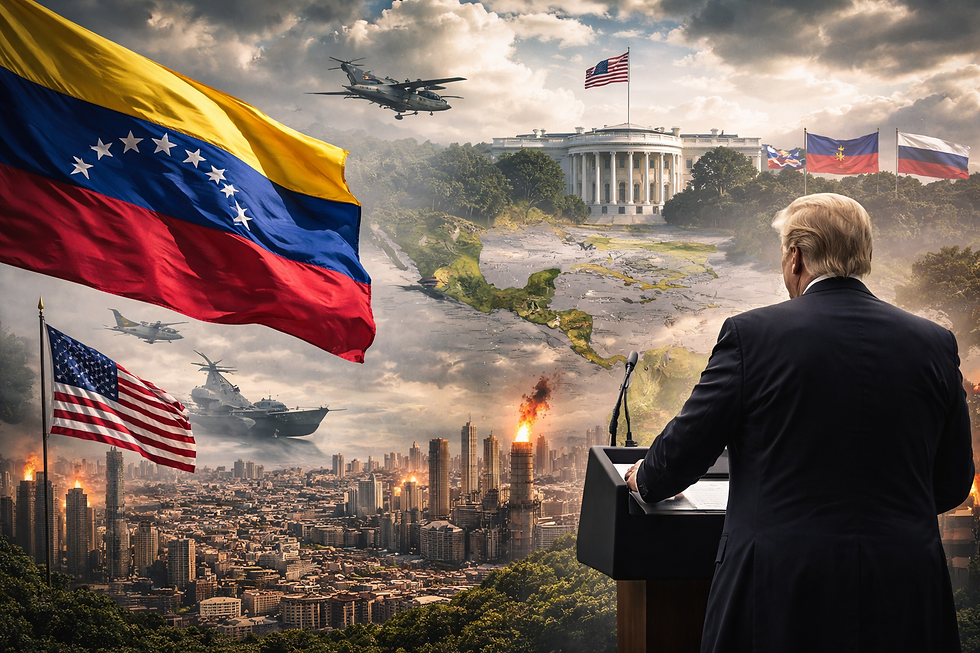Gaza: Between bombs, governments, and peoples, why the solution requires delegitimizing violence on both sides
- laboratoriio360
- Sep 29, 2025
- 4 min read
The fragile and tragic reality of Gaza is no longer just a series of headlines: it is a humanitarian catastrophe with thousands dead, hospitals on the verge of collapse, and aid corridors closed. In recent weeks, the Israeli offensive has caused numerous casualties and worsened a food and health crisis in the northern part of the Strip; the closure of supply routes has drastically reduced aid deliveries.
Given this scenario, it is necessary to maintain a doubly demanding approach: on the one hand, to judge the decisions and responsibilities of governments; on the other, to recognize the distinction between those governments and the civilian populations who suffer the direct consequences. Confusing people with governments facilitates the logic of revenge and legitimizes narratives that end up justifying more violence. Stating this clearly is not neutrality: it is a moral and practical requirement if we aim to recover some space for politics and negotiation.
Israel's actions: state responsibility and legal and moral questions
The State of Israel acts under what it claims is a security rationale—destroying Hamas capabilities and rescuing hostages—but these operations take place in a densely populated urban environment. Reports and analyses indicate very high levels of civilian mortality and the collapse of basic services; international institutions have repeatedly warned of the risk of famine and damage to humanitarian infrastructure. These findings require a rigorous examination of the proportionality, distinction, and mitigation measures required by international humanitarian law.
Criticizing a government for military decisions does not mean denying its citizens' right to live in safety. Israel, like any state, has a duty to protect its population from attack; but this duty does not exempt it from the legal obligation to minimize harm to civilians and guarantee effective access for humanitarian aid.
The Palestinian government's actions in Gaza: the problem of power and tactics
The de facto government in Gaza and the armed structures operating there have committed acts that precipitated this war and have been responsible for attacks against Israeli civilians. Furthermore, military practices and the use of urban spaces by armed groups complicate the protection of civilians and create distinct obligations for all parties. To fail to acknowledge this would be to ignore the reality that, to a large extent, explains the dynamics of the conflict.
However, holding the authorities and militias accountable should not translate into collective blame on the Palestinian population. Millions of people in Gaza are civilians caught in a spiral of violence, displacement, and deprivation.

Treating "the people" as unitary actors and, worse still, as collective accomplices is the prelude to dehumanization and policies that legitimize collective punishment. At the same time, failing to clearly separate the actions of a government or armed organization from its society undermines the possibility of building social unity that can push for political alternatives.
The distinction is strategic: it involves opening cracks in the legitimacy of violent decisions without turning entire societies into moral or military targets. Only from this crack can social currents emerge that demand a halt to the escalation and negotiate.
Mobilize the people, but not for violence, but for non-violent delegitimization.
If the real objective is to force a negotiating table with minimal guarantees, the most powerful lever today is neither military nor solely diplomatic: it is social. Millions of people on both sides are suffering, but they can also, to varying degrees, exert pressure on their leaders when they organize, protest, boycott policies, denounce, construct alternative narratives, and request credible international mediation.
This mobilization must be emphasized as nonviolent and aimed at the political delegitimization of decisions that perpetuate war: mass demonstrations, civil strikes, selective boycotts of policies or products linked to specific decisions, ethical civil disobedience campaigns, and appeals to international courts and institutions. These tactics, used prudently and with respect for human rights, are what have forced real change in other modern conflicts.
Important: Asking people to mobilize is not asking them to assume the blame for their governments or to become actors in retaliation. It is asking them to collectively and nonviolently withdraw the social consent that allows for the continuation of indiscriminate military policies.
Breaking the cycle of victimization and demonization
It's not about mobilizing against only one side, which is the stronger one. Objectivity demands recognizing that victimizing one side and demonizing the other, ignoring past events and weighing biased accounts, only leads to entrenchment and a refusal to listen. As long as the narrative continues to be constructed in terms of absolute guilt versus absolute innocence, no negotiation will be viable.
Social pressure must act as a corrective to this narrative: showing that both Israelis and Palestinians are suffering, that both have seen their communities ravaged by violence, and that if people do not demand a political solution from their leaders, the war dynamic will continue to perpetuate.
Only when Israelis and Palestinians, through their civil societies, withdraw the legitimacy of violence from their respective governments and armed forces, will space be opened for a real negotiation process. Social delegitimization + international pressure + impartial mediation is the only formula, slow but possible, to transform tragedy into an opportunity for peace.











Comments